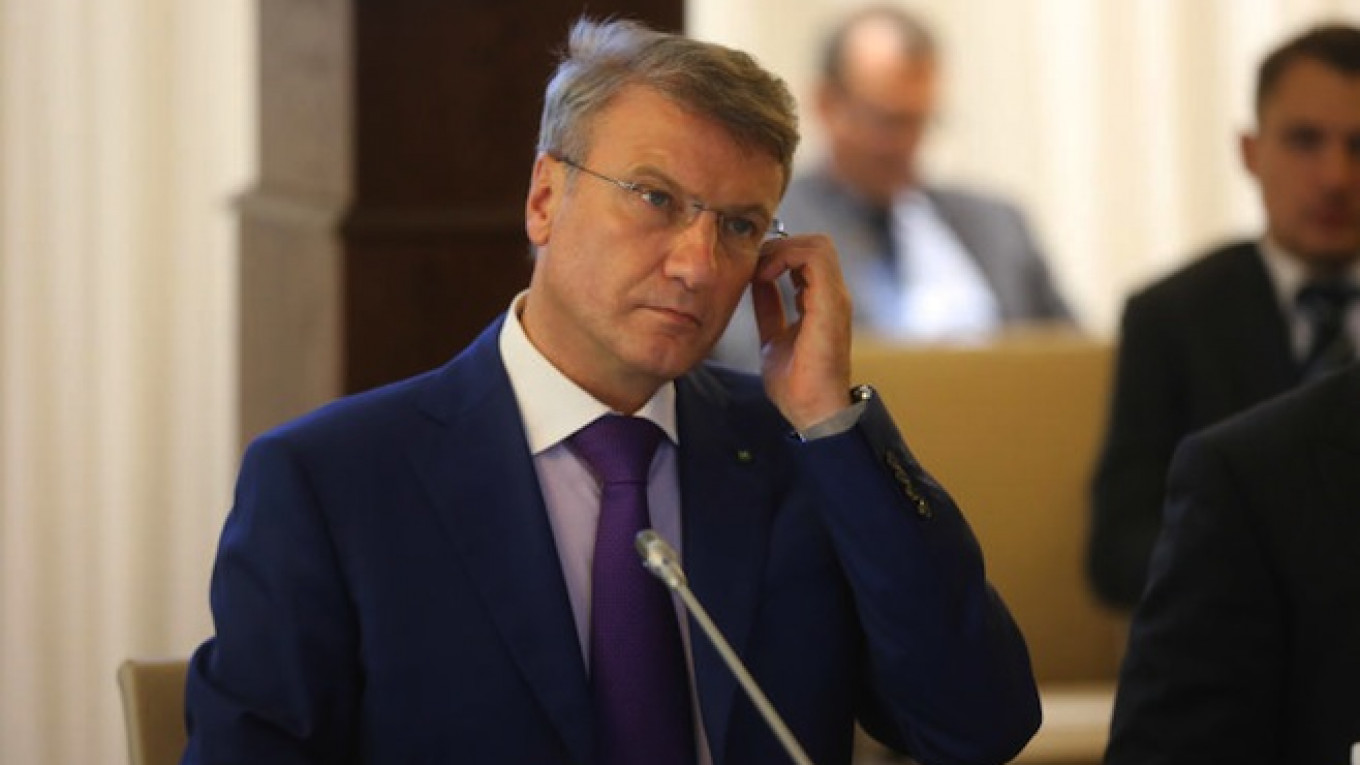Russia has failed to adapt to economic and technological change and has fallen into the ranks of "downshifter" countries that will catastrophically lag behind their more advanced rivals, the head of the country's largest bank said Friday.
"We must honestly admit that we have lost to competitors," German Gref told the Gaidar Forum in Moscow, according to news agency RIA Novosti. Warning of "technological subjugation," he said, "we have found ourselves in the ranks of countries that are losing, downshifter counties."
Gref — head of Sberbank and a former economic development minister under President Vladimir Putin — said the era of oil was over and that in the new technology-driven world the difference between the leaders and losers would be "larger than during the industrial revolution," according to the Rambler news service.
His warning came as a steep decline in oil prices has pitched Russia into its longest recession since the 1990s, demonstrating the country's reliance on energy exports.
Gref called for radical overhaul of state institutions and the education system to enable people to join the technical revolution.
But referring to the huge numbers of educated Russians who prefer to live and work in Europe and the United States, he warned: "Our most terrible export, and our largest export, which we must stop, is the export of brainpower. We don't count how many we export each year but I fear that in terms of losses, it is the biggest of our exports."
A Message from The Moscow Times:
Dear readers,
We are facing unprecedented challenges. Russia's Prosecutor General's Office has designated The Moscow Times as an "undesirable" organization, criminalizing our work and putting our staff at risk of prosecution. This follows our earlier unjust labeling as a "foreign agent."
These actions are direct attempts to silence independent journalism in Russia. The authorities claim our work "discredits the decisions of the Russian leadership." We see things differently: we strive to provide accurate, unbiased reporting on Russia.
We, the journalists of The Moscow Times, refuse to be silenced. But to continue our work, we need your help.
Your support, no matter how small, makes a world of difference. If you can, please support us monthly starting from just $2. It's quick to set up, and every contribution makes a significant impact.
By supporting The Moscow Times, you're defending open, independent journalism in the face of repression. Thank you for standing with us.
Remind me later.






